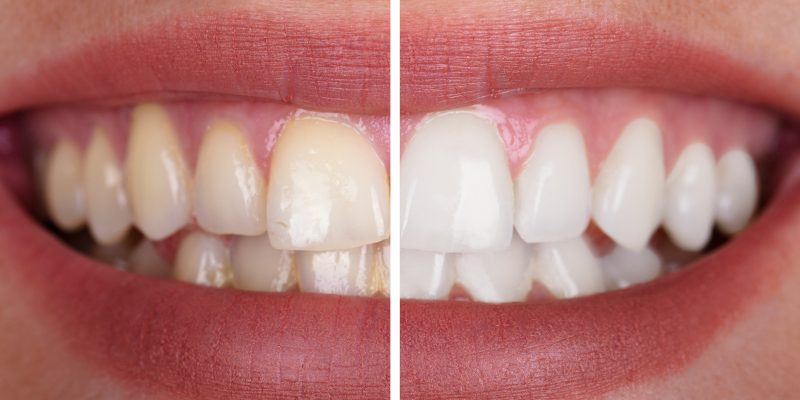Yellow teeth are one of the top complaints that dentists hear from their patients. While at-home or in-office whitening treatments can work to remedy this, there are several habits, foods, and drinks that can discolor your teeth and compromise a luminous smile.

Here are the main culprits that keep you from a bright, white mouthful of teeth:
- Food and drinks: Acidic and sugary foods and drinks can compromise your enamel and stain your teeth. Main offenders are highly pigmented foods, including berries, curry spices, and dark condiments like barbeque, soy, and red marinara sauces. Drinks like black tea, coffee, wine, and sodas are also detrimental to your oral health and can lead to yellow teeth over time.
- Deteriorating enamel: As your enamel wears down and becomes more translucent, a yellowish-brown material called dentin that lies beneath can begin to show through and alter the brightness of your teeth.
- Lifestyle habits: Those who smoke or consume tobacco are much more susceptible to yellow teeth and discoloration, as these products are likely to cause brown or yellow surface stains.
- Age and wear: Chewing, grinding, or exposing enamel to harmful acids and sugars can cause thinning and deterioration of the outer layers of your teeth, which may result in a yellow or grayish hue over time.
- Genetics: The color of your teeth is actually an attribute that can run in your family. Typically, teeth can have a reddish, brown, yellow, or gray natural shade that comes from your family’s genes.
- Antibiotics: Tetracycline antibiotics can stain teeth while they’re still developing below the gums. If you’ve taken this type of antibiotic before your teeth fully developed — usually around age eight — or if your mother took antibiotics during the second half of her pregnancy, you are susceptible to staining that can be remedied with professional teeth whitening.



